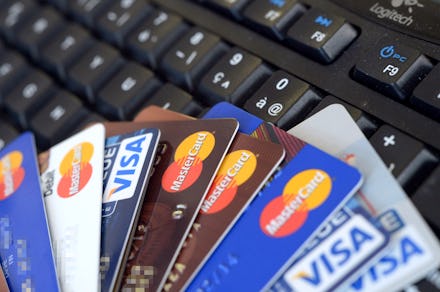Credit Cards Are Getting More Popular Again — Just Not Among Millennials

Credit card usage in the United States is on the rise, but young adults are bucking that trend, according to a new analysis by the New York Times.
While Americans are borrowing more — with household debt, including credit cards and auto loans, climbing by $35 billion in the past quarter — that growth isn't coming from young people. In fact, the proportion of people younger than 35 with credit card debt is at a nearly 30-year low.
A Bankrate survey from this spring had similar conclusions, finding that only one third of adults aged 18 to 29 own a credit card at all.
Researchers said the drop in millennials' credit card debt reflects a conservatism among young people who came of age during the financial crisis, as well as new rules that have limited how much credit card companies can market to college students.
"It's pretty clear that young people are not interested in becoming indebted in the way that their parents are or were," payment industry expert David Robertson told the New York Times.
One scary trend? Because people (of all ages) with better credit are still skittish about credit cards, companies are now more actively marketing to people with poor credit: Lenders have been issuing credit cards to so-called "subprime" borrowers at the highest rate since 2007 — the onset of the financial crisis.
Subprime borrowers often end up paying much higher fees, which is great for card companies, and terrible for those trying to climb out of debt.
"Credit cards are one of the few business lines working for banks right now," the Wall Street Journal wrote in May, adding that banks have been aggressively targeting consumers by raising credit limits.
Now, while racking up credit card debt you can't afford can certainly endanger your future, not having a credit card at all can also lead to serious financial setbacks down the line.
The biggest problem is that if you're not using credit cards, then you're not proactively building your credit history, which will make it harder for you to secure a mortgage or an automotive loan later in life.
People with shorter credit histories also tend to have lower credit scores, and are likely to have to accept higher interest rates.
A smart move: Open a credit card with no annual fee and perks like cash back — and then pay it off on time each month.
Not only will you be investing in a better credit history, but if you always pay on time (or early) and read the fine print so you know how to best use your card perks, you could net out with more cash than when you started.